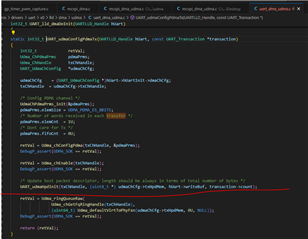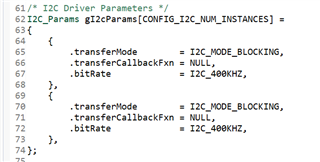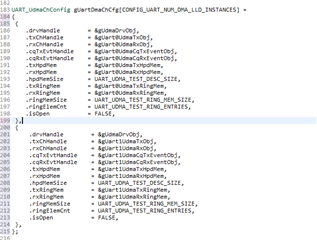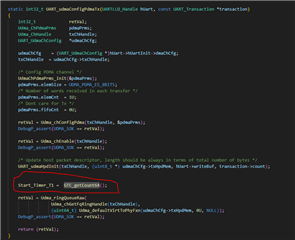Part Number: MCU-PLUS-SDK-AM243X
Other Parts Discussed in Thread: SYSCONFIG
Tool/software:
Hi experts.
I am using motor_control_sdk_am243x_09_02_00_09, CCS 12.6, SysConfig 1.21.1.
I am working with the uart_echo_dma_lld_am243x-evm_r5fss0-0_nortos_ti-arm-clang example, I simply tried to add another UART in DMA mode. The result is a compiler error in the auto-generated sysconfig code:
1602.example.syscfg.zip
Building file: "syscfg/ti_drivers_open_close.c"
[...]
syscfg/ti_drivers_open_close.c:136:19: error: redefinition of 'gUartDmaChCfg'
UART_UdmaChConfig gUartDmaChCfg[CONFIG_UART_NUM_DMA_LLD_INSTANCES] =
^
syscfg/ti_drivers_open_close.c:100:19: note: previous definition is here
UART_UdmaChConfig gUartDmaChCfg[CONFIG_UART_NUM_DMA_LLD_INSTANCES] =
^
1 error generated.
gmake: *** [syscfg/ti_drivers_open_close.o] Error 1
The problem is gone when I remove the second UART and insert again, this time in polling mode.
There seems to be a problem with code generation. Is there a workaround?
BR
Alexander










